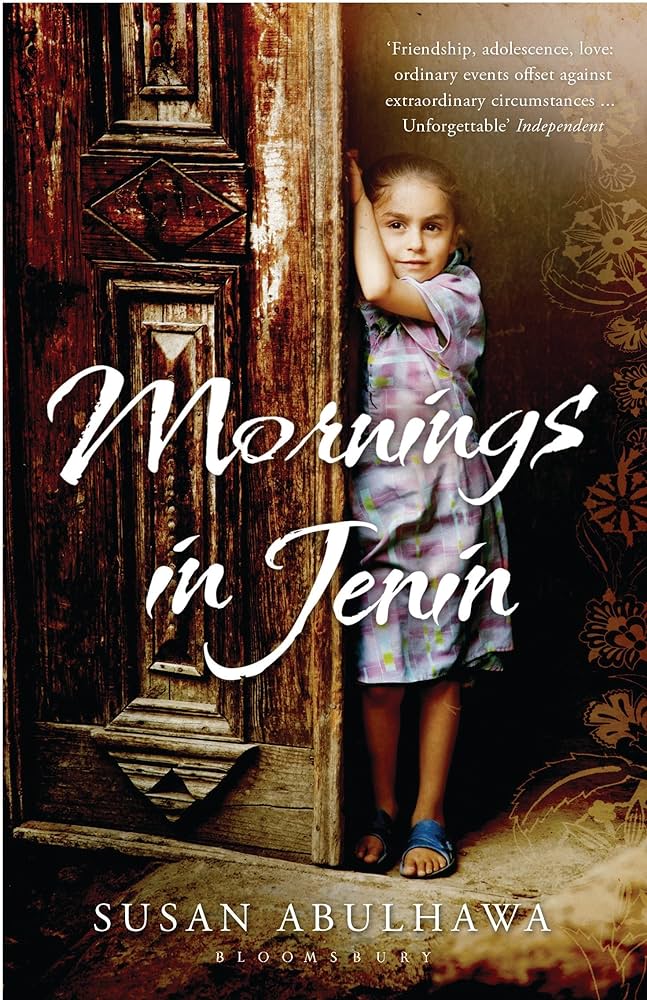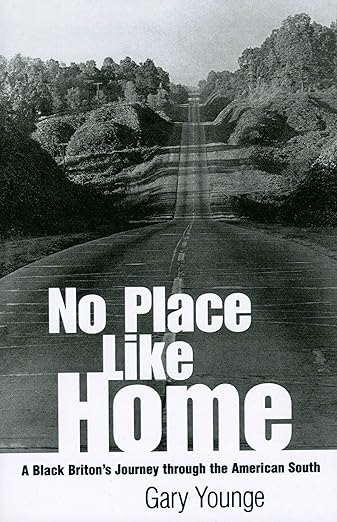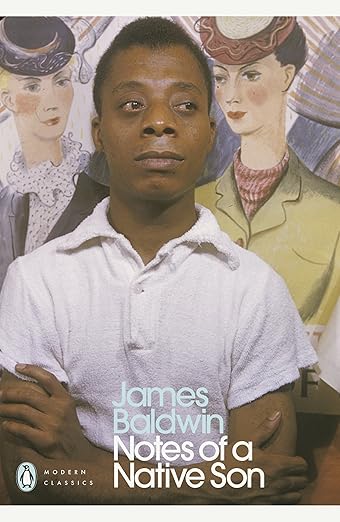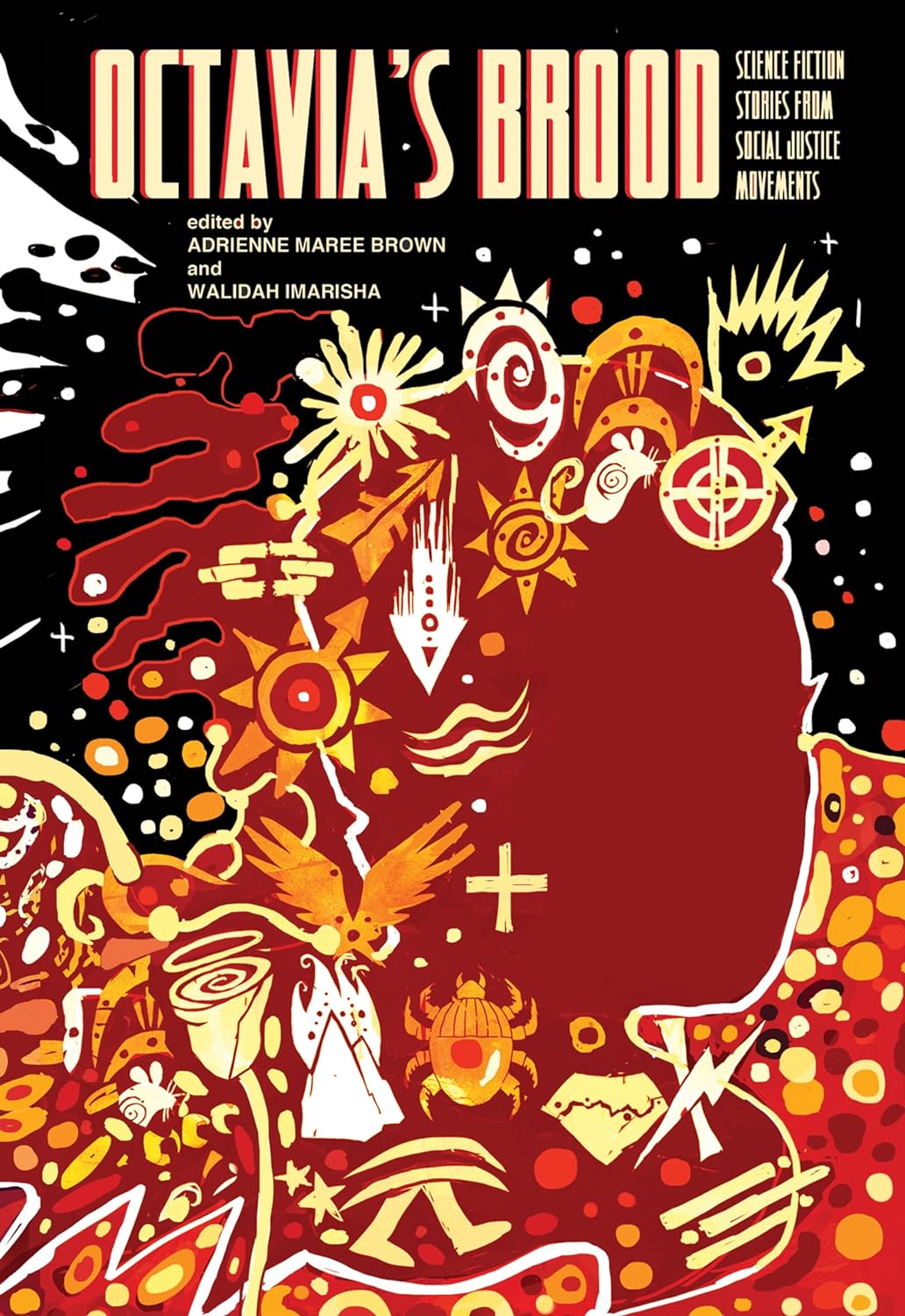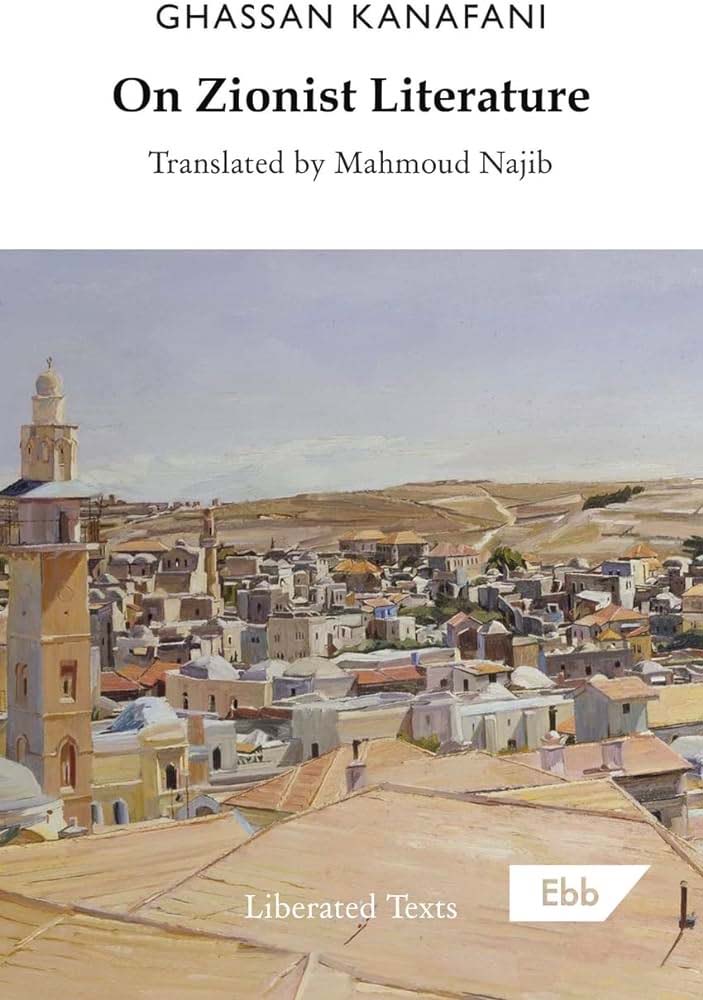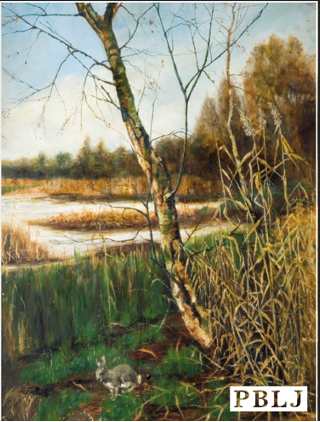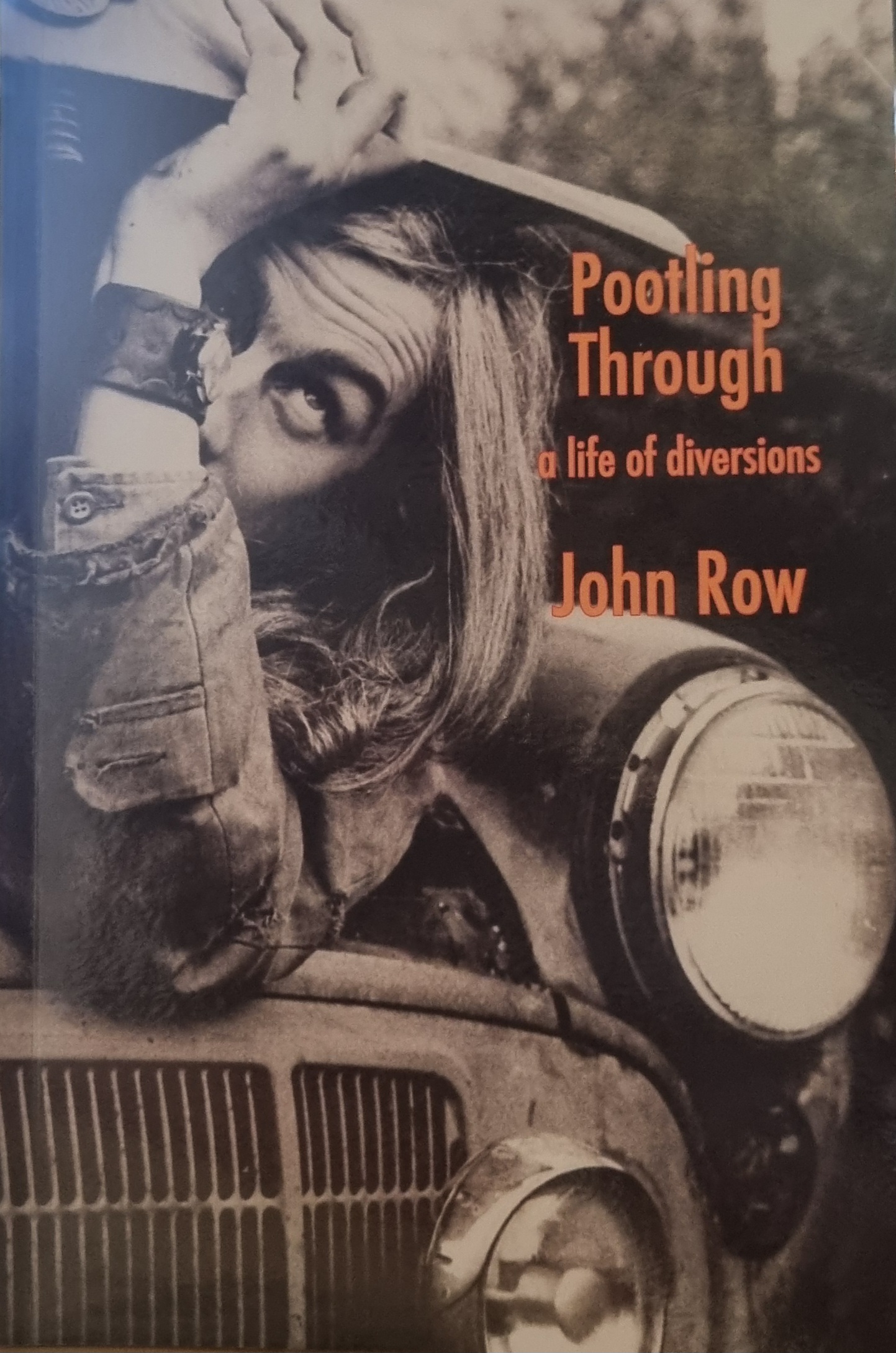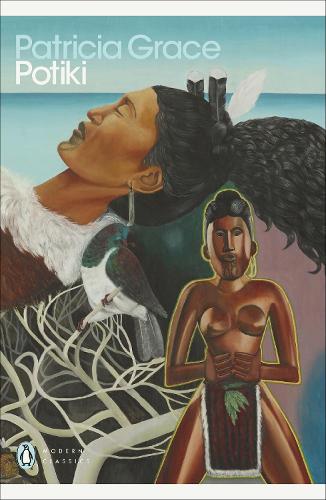Mornings in Jenin is a devastating novel of love and loss, war and oppression, and heartbreak and hope, spanning five countries and four generations of one of the most intractable conflicts of our lifetime. Palestine, 1948. Half a million Palestinians are forced from their homes. A mother clutches her six-month-old son as Israeli soldiers march through the village of Ein Hod. In a split second, her son is snatched from her arms and the fate of the Abulheja family is changed forever. Forced into a refugee camp in Jenin and exiled from the ancient village that is their lifeblood, the family struggles to rebuild their world. Their stories unfold through the eyes of the youngest sibling, Amal, the daughter born in the camp who will eventually find herself alone in the United States; the eldest son who loses everything in the struggle for freedom; the stolen son who grows up as an Israeli, becoming an enemy soldier to his own brother.
Travelog, social commentary, and journey to self-discovery, the story of a black Englishman's amazing trek through Dixie to connect with his racial identity In 1997 Gary Younge explored the American South by retracing the route of the original Freedom Riders of the 1960s. His road trip was a remarkable socio-cultural adventure for an outsider. He was British, journalistically curious, and black. As he traveled by Greyhound bus through the former Confederate states, he experienced an awakening. He felt culturally tied to this strange yet familiar place. Though a Briton by birth and the child of emigrants from Barbados, he felt culturally alien in his native land. In Dixie, however, he met African Americans whose racial distinctiveness was similar to his own. To local blacks he looked like a brother, while sounding intriguingly foreign. As he assessed their political rise in the South, he noted too how African American tradition seemed static and unchanged. It was a refreshing whiff of "home."
James Baldwin's breakthrough essay collection made him the voice of his generation. Ranging over Harlem in the 1940s, movies, novels, his preacher father and his experiences of Paris, they capture the complexity of black life at the dawn of the civil rights movement with effervescent wit and prophetic wisdom.
'A classic ... In a divided America, James Baldwin's fiery critiques reverberate anew' Washington Post
'Edgy and provocative, entertainingly satirical' Robert McCrum, Guardian
'Cemented his reputation as a cultural seer ... Notes of a Native Son endures as his defining work, and his greatest' Time
Whenever we envision a world without war, without prisons, without capitalism, we are producing speculative fiction. Organisers and activists envision, and try to create, such worlds all the time. Walidah Imarisha and adrienne maree brown have brought twenty of them together in the first anthology of short stories to explore the connections between radical speculative fiction and movements for social change. The visionary tales of Octavia's Brood span genres - sci-fi, fantasy, horror, magical realism - but all are united by an attempt to inject a healthy dose of imagination and innovation into our political practice and to try on new ways of understanding ourselves, the world around us, and all the selves and worlds that could be. The collection is rounded off with essays by Tananarive Due and Mumia Abu-Jamal, and a preface by Sheree Renée Thomas.
Translated into English for the first time after its publication in 1967, Ghassan Kanafani's On Zionist Literature makes an incisive analysis of the body of literary fiction written in support of the Zionist colonization of Palestine. Interweaving his literary criticism of works by George Eliot, Arthur Koestler, and many others with a historical materialist narrative, Kanafani identifies the political intent and ideology of Zionist literature, demonstrating how the myths used to justify the Zionist-imperialist domination of Palestine first emerged and were repeatedly propagated in popular literary works in order to generate support for Zionism and shape the Western public's understanding of it. The new preface by Anni Kanafani and an introduction by Steven Salaita place On Zionist Literature in its broader historical context and make a compelling case for its ongoing significance more than five decades since its original publication, illustrating the extent to which "Kanafani was a searing and incisive critic, at once generous in his understanding of emotion and form and unsparing in his assessment of politics and myth."
A collection of fifty-five feminist poets with an introductory essay, biographical notes and author photos.
The Spring 2025 issue of Poetry Birmingham Literary Journal comprises over 200 pages of poems, essays, interviews, and reviews edited by Naush Sabah.
Rowland Bagnall reviews Go Figure, Kavita Bhanot on the Idea(l) of Literature, Gerry Cambridge on Anthony Hecht, Caroline Clark on the Moscow nightingale, Fred D’Aguiar on Benjamin Zephaniah and reviewing [...] and Forest of Noise, W. J. Davies interviews Peter Robinson on Roy Fisher, Julie Irigaray on Rimbaud, Gregory Leadbetter reviews Worlds Woven Together, Andrew Neilson on Roddy Lumsden, Clare Pollard on invented creatures, Camille Ralphs interviews Andrew Motion and Michael Hofmann, Jacqueline Saphra on teaching poetry, Alina Stefanescu on the republic of letters, Sarah Westcott on animal hearts, and Jeremy Wikeley reviews Come Here to This Gate.
Poems by Paul atten Ash, Khairani Barokka, Daragh Byrne, Troy Cabida, Gerry Cambridge, Sophia Rubina Charalambous, Courtney Conrad, Meredith MacLeod Davidson, Yanita Georgieva, Cathra Kelliher, Richard Lambert, Gregory Leadbetter, Angela Leighton, Dominic Leonard, Rob McClure, Andrew Hykel Mears, Alex Mepham, Benedict Newbery, Sarah O’Connor, Anita Pati, Hua Qing (translated by Liang Yujing), Tim Relf, Jake Reynolds, Paul Robert, Julie Runacres, Laura Theis, Nadira Clare Wallace, and Rich Ware.
The Amazing Adventures of Master Storyteller John Row...
John Row has been a professional artist, writer, performer for sixty years.He's been everywhere, man, studying at art school with a teenage Brian Eno, in at the early days of Rock Against Racism, touring with punk and reggae bands, hip hop artists and, more recently, in his mid-seventies and during Covid lockdown, curating the worldstorytellingcafe.com website and directing the Marrakech International Storytelling Festival once the borders were reopened.
Dive into a collision of memories, anecdotes and thoughts drawn from six decades of being at the cutting edge of street poets and alternative lifestyles, giving voice to the unheard and celebrating life in all its diversions and diversities.
John Row is a force of nature. Take it from the one who knows...
Himself!
Potiki is a novel by New Zealand author Patricia Grace. First published in 1986, the book is a significant work in contemporary Māori literature, and explores themes of cultural identity, land rights, and the impacts of urban development on indigenous communities. It was critically and commercially successful, and received the New Zealand Book Award for Fiction in 1987. It was published during the Māori renaissance, a period of time in which Māori culture and language was experiencing a revitalisation, and academics have described it as being part of that movement. Due to its themes of Māori resistance to colonialisation, the novel was viewed by some critics as political, although Grace has said that her intention was to write about people living ordinary lives. It was also unusual for its time in not including an English glossary of te reo Māori (Māori language) words, on the basis that Grace did not want Māori to be "treated as a foreign language in its own country".

